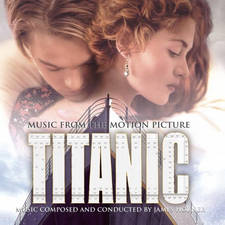The Golden Age of Hollywood
On Saturday Night at the Movies, Saturday 31 May 5pm-7pm, Howard Goodall looks back at the great era when Hollywood film music was big, bold and breathtaking.
On this week's show Howard Goodall is stepping back in time to celebrate the golden age of Hollywood, exploring works by such prestigious film composers as Bernard Herrmann, Max Steiner, Erich Wolfgang Korngold and Elmer Bernstein.
Herrmann (1911-1975) owed his lucky break to Orson Welles, with whom he worked in radio. Welles commissioned Herrmann to provide the score for his first film – and masterpiece – Citizen Kane (1941). In his music for Kane, Herrmann demonstrated that he could successfully tackle any style of music – from grand opera to jaunty humour. Later he would apply his considerable talent to every genre, ranging from psychological thrillers to ‘sword and sorcery’ adventures. It is for his collaboration with Alfred Hitchcock that Herrmann is best remembered; he was the master of the dark, brooding atmosphere. In Psycho (1960), his screeching violins for the shower scene have inspired horror movie soundtracks to this day.
Born in Vienna, Max Steiner (1888-1971) was a child prodigy who had studied with Johannes Brahms and Gustav Mahler and counted Richard Strauss as his godfather. Steiner arrived in Hollywood just as the major studios were embracing sound and wrote the first fully integrated score revolutionizing the movie industry’s approach to music. For King Kong, his grand symphonic score, particularly the use of a three-note musical motif depicting the beast, set the standard for everything that was to follow. And then, of course, there's his Gone with the Wind score.
Another former child prodigy from central Europe who set a high standard for film scoring was Erich Wolfgang Korngold (1897-1957). The composer of only 16 soundtracks, it is for his music for Errol Flynn’s adventure pictures that Korngold is best remembered. He wrote his first orchestral music as a teenager and, like Steiner, also won adulation from the likes of Richard Strauss. Mahler described the young Erich as a ‘musical genius’.
The introduction of jazz into film scores launched the career of Elmer Bernstein (1922-2004), one of Hollywood’s greatest masters of movie music. His rollicking The Magnificent Seven (1960) theme and The Great Escape (1963), with its cheery march, both became classics that have enjoyed a long, independent life in the concert hall, on recordings and as favourites for military bands.











